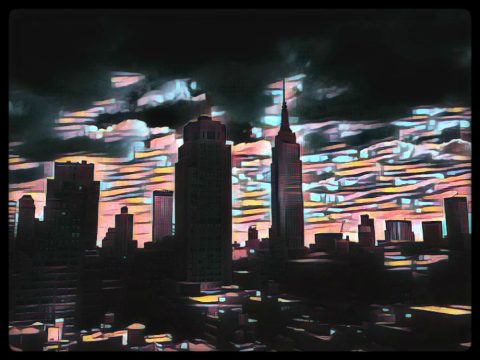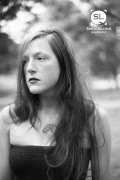Having read “Pulpo” a few times, my main question was “Isn’t it profoundly moving, what a story can do?” That’s not much of an interview, is it? But here’s a question: When you’d finished the story, what did you think you expressed the most keenly?
I think there are the emotions we writers feel most keenly in writing a story and those our readers feel most keenly when reading it, and I think I’ve finally learned they aren’t necessarily the same emotions. What I most keenly feel when I think about this story is the fear of loss. My grandmother died of Alzheimer’s years ago, but that fear of losing her, my parents, my husband, myself, a little at a time and then all at once, completely—that fear has never left me. It is close to the surface. But, I don’t know that that is the emotion I conveyed most keenly. Honestly, I think that emotion may just simply be love. It’s a story about love, isn’t it? I hope if I succeeded at anything, I succeeded at getting at some of the complexity of love. Her wanting to be there and wanting to escape. Him cooking. The food. The science. It’s all love, I think.
Today I’m thinking about science and how remote it feels from some people’s lives—to the extent that they’re willing to deny climate change and oppose support for scientific inquiry. But in this story, science deepens the compassion and makes the pain of an anticipated loss even keener for the main character. Does science regularly inspire you, and what is it about science that makes you feel that way (whether once or frequently)?
I am always confused by people’s general separation from science. I love science for the same reason I write, the same reason I read, the same reason I travel—curiosity. How can anyone not be curious, be fascinated, by how their own bodies work? About the life—big and small—around them. About machines and air and bugs and cephalopods and rocks and everything. Every bit of it is fascinating. And people devote their lives to that curiosity and do the hard parts for me, and all I have to do to be a part of it is read or listen; how great is that? Science inspires me constantly. Many of my stories have started after hearing a podcast or reading an article about some new discovery or some bit of science history. The creative gifts are endless. Endless.
Aren’t octopi fascinating? What’s your favorite octopus fact?
So octopi are great learners. They are really curious, really clever. They are great problem solvers. But their brain isn’t at all what we think of—what we laypeople think of—when we think “brain.” It isn’t a centralized giant pink head of cauliflower. It’s distributed. They have neurons in all their arms firing, processing. It’s amazing.
If you were an animal, what would you be? (I ask that question a lot, but I’m never disappointed by the answer.)
My husband and I have been discussing this since I got the e-mail. The problem is, I wouldn’t be any of those cool, graceful, gorgeous beasts you want to answer when someone asks you this. I’m just not any of those things. Have you ever seen those cats with the super short legs? They’re ridiculous. There are videos of them trying to run, trying to jump, trying to assert themselves all over the Internet. Why? Because they look hilarious. They are so silly, struggling with such joy. That’s what my husband said about me; I love my struggle. I’m not great at a lot of things. I’m clumsy, short, a bit pudgy. But I get a kick out of trying. It’s hilarious to me. I’m out here in Alaska right now, on vacation, trying to scramble up these hiking trails, getting passed by all of the cool, graceful, gorgeous humans. And it’s great. It’s hilarious. I’m having a great time, me and my short legs.
What is it that you want to achieve in your art? It’s a pretty big question, but to reword it, why do you write?
I write because I want to communicate. I want to reach out and tell a stranger a story. I have this voice, and man, I want it to be heard. I love to tell stories. I guess that’s why I write. It’s not big. It’s not a big answer, but it’s what I have.



 The core workshop of SmokeLong Fitness is all in writing, so you can take part from anywhere at anytime. We are excited about creating a supportive, consistent and structured environment for flash writers to work on their craft in a community. We are thrilled and proud to say that our workshop participants have won, placed, or been listed in every major flash competition. Community works.
The core workshop of SmokeLong Fitness is all in writing, so you can take part from anywhere at anytime. We are excited about creating a supportive, consistent and structured environment for flash writers to work on their craft in a community. We are thrilled and proud to say that our workshop participants have won, placed, or been listed in every major flash competition. Community works.